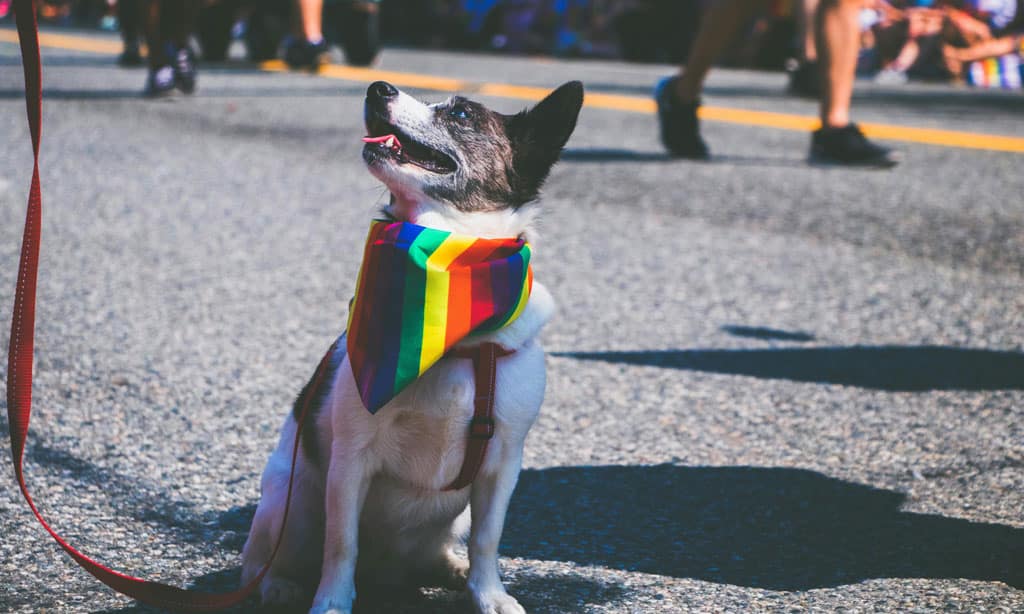Introduction
You may be a current pet owner, had a loveable character in your past, or simply looking to bring some extra love into your home, but have you ever questioned which animals are most loved within the LGBTQ+ community, or which make the best pets overall?
In this article we highlight recent studies which point out that members of the LGBTQ+ community are most likely to own pets when compared to heterosexuals. We discuss which animals are most loved by the community, and which ones are owned by those who identify as straight.
Pets in the LGBTQ+ Community
In recent studies it has been highlighted that over 70% of LGBTQ+ adults have pets, which is a significant increase when compared to 60% of straight adults. This matches an older poll back in 2017 carried out by Harris Interactive that highlighted 7 out of 10 LGBTQ+ adults owned pets.
But what about the animals most present in the community? Below we highlight the main pets in LGBTQ+ homes from fish and hamsters, to the more obvious dogs and cats, with a comparison between the ownership of those who identify as straight.
It’s believed that cats are more likely to be owned by those who identify as LGBTQ+ at 63%, yet on the other hand straight dog owners appear to make up 71% which clearly points out that cats are most loved by the community in the battle of cats and dogs.
LGBTQ+ Pet Owners
If you already own a pet yourself, you’ll probably understand that the LGBTQ+ community is extremely pet friendly. The poll back in 2007 reflects this with over 70% of LGBTQ+ adults being proud pet owners compared to 60% of heterosexual adults owning pets. Those identifying as lesbian, gay, bisexual, or transgender are most likely to rescue animals from shelters to support a local animal rescue, and to offer a new forever home for their new addition to the family.
There could be a strong correlation between adoption of animals and those who identify as LGBTQ+. In an article written by Queercafe, they highlight that “LGBTQ pet owners understand what it’s like being treated as an outsider”. With LGBTQ individuals facing intolerance, cruelty, and separation in life, they are more likely to end the struggles of pets going through the same hardships whilst being able to create a lifelong bond.
In addition to the side of empathy, there are countless studies on the strong connection between owning a pet and a stronger mental health balance. This can be through multiple ways which include physical exercise such as taking a dog on a walk, or the close connection with a cat curled up on your lap. Either way, the strong bond created between human and pet is a sure way to increase your mood and mental health overall.
Connection Between Pets and LGBTQ+ Youth
A recent investigation delves into the dynamics between pets and young LGBTQ owners, aiming to understand how these relationships impact their well-being, particularly in the face of discrimination based on sexual orientation or identity.
Since 2018, ongoing research at the VCU School of Social Work has been scrutinizing the influence of pets on the lives of LGBTQ youth. From employing animal-assisted therapy techniques to introducing therapy dogs in educational settings to alleviate anxiety, the mental health advantages of human-animal interactions are well-documented. While existing studies predominantly concentrate on non-marginalized populations, this specific inquiry seeks to shed light on the positive and negative effects of pets on the lives of young LGBTQ individuals.
Commencing in 2018, this study has specifically targeted the role of animals in the lives of LGBTQ youth aged 15 to 21. In light of the COVID-19 pandemic, many interviews have been conducted via video conferencing, with an expanded scope to explore participants’ experiences with pets during lockdowns. These interviews have delved into topics such as the nature of their bond with their pets, the stressors and benefits of pet ownership, and the role of pets during periods of confinement.
The impact of human-animal interaction on well-being is undeniable, as evidenced by numerous studies over the years. Similarly, a separate study conducted in 2018 examined the influence of pets on the lives of older LGBTQ individuals, focusing on aspects such as perceived social support and the significance of pets in their lives.
Of the participants in this study, over 59 percent reported pet ownership, often describing their pets in affectionate terms and considering them as integral members of their families. Many participants highlighted their pets’ supportive roles, whether through companionship, encouragement of physical activity, or assistance in managing health conditions.
Connection Between Pets and LGBTQ+ Youth
In summary, pets hold great significance for the LGBTQ+ community, with studies showing higher rates of ownership compared to heterosexuals, especially with a preference for cats. LGBTQ+ individuals often rescue animals from shelters, finding common ground in their shared experiences of marginalization. These relationships are marked by empathy, as LGBTQ+ individuals, who often face discrimination, form strong bonds with their pets, which in turn positively impacts mental health. Research highlights the importance of these connections for LGBTQ+ youth, aiding in resilience against discrimination. Ongoing studies aim to deepen our understanding of these relationships, emphasizing the crucial role pets play in supporting and enhancing the lives of LGBTQ+ individuals.
